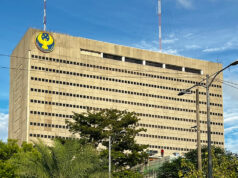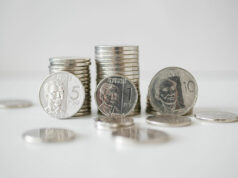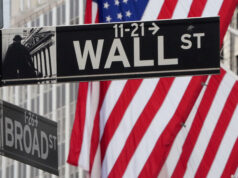Peso rebounds on profit taking ahead of ECB statement, SONA
THE PESO rebounded against the dollar on Thursday from a near 11-year low on the back of profit taking ahead of President Rodrigo R. Duterte’s State of the Nation Address (SONA) as well as bets of hawkish move by the European Central Bank (ECB) later in the day.
 The local unit ended at P50.88 yesterday, gaining six centavos from its P50.94 finish on Wednesday, which was its worst finish in close to 11 years or since it ended at P50.945 per dollar on Aug. 29, 2006.
The local unit ended at P50.88 yesterday, gaining six centavos from its P50.94 finish on Wednesday, which was its worst finish in close to 11 years or since it ended at P50.945 per dollar on Aug. 29, 2006.
The peso opened the session at P50.90 versus the foreign currency, closer to its weakest level for the day at P50.93 per dollar, while its intraday peak was seen at P50.815 against the greenback. Dollars traded stood at $557.35 million on Thursday, slightly up from the $523 million that changed hands on Wednesday.
One trader attributed the peso’s strength versus the greenback to profit taking due to bets of hawkish remarks from the ECB at the close of its policy meeting.
“The peso appreciated today due to profit taking ahead of the likely hawkish ECB interest rate decision,” the trader said by e-mail on Thursday.
Reuters reported analysts are expecting the ECB to provide concrete details for their policy shift by September or October, with their decision driven by improved economic growth.
Meanwhile, another trader said by phone that the dollar declined against the peso on the back of profit taking as some market players await for Mr. Duterte’s second SONA next week.
“Basically, much of investors just squared off due to their long positions on Wednesday and there was profit taking ahead of the SONA,” the trader said.
For Friday, one trader said the exchange rate could settle at the P50.80 level, while the other trader said the peso could trade between P50.75 and P50.95 versus the greenback. “The peso might recover further due to expectations that the ECB would provide a more hawkish forward policy guidance,” one trader noted.
According to the trader, hawkish remarks from policy makers could translate to a softer dollar versus major and regional currencies.
“A hawkish ECB usually means a weaker dollar against the euro and a basket of other foreign currencies, including the peso. Any unexpected moves by the Bank of Japan might also influence market movements,” the trader said.
In contrast, Asian currencies were lower on Thursday as the dollar recovered from 10-month lows, while caution prevailed among investors waiting for an outcome from the ECB’s policy meeting. — Janine Marie D. Soliman with Reuters



